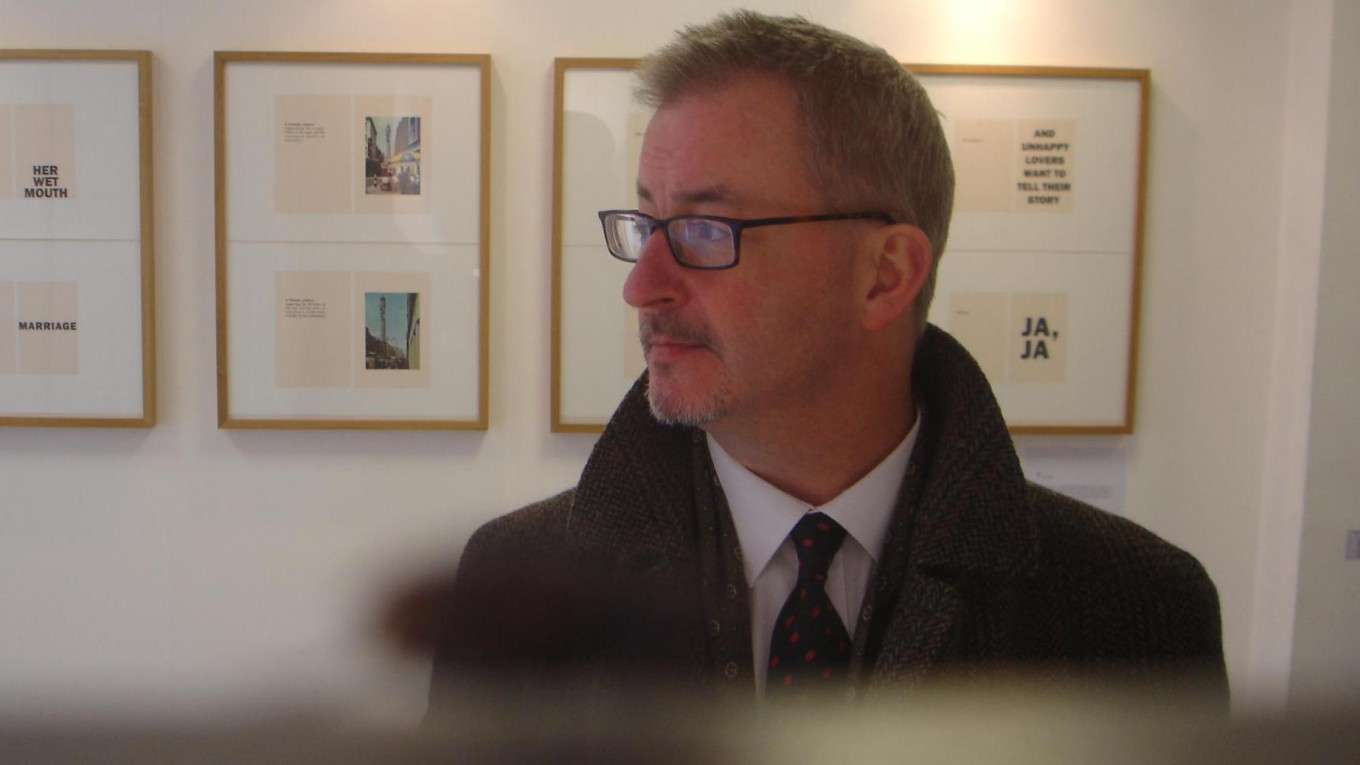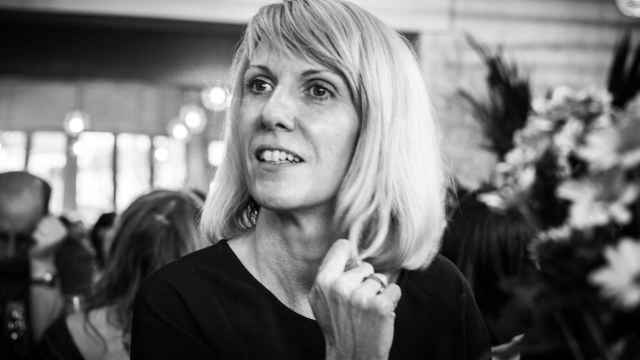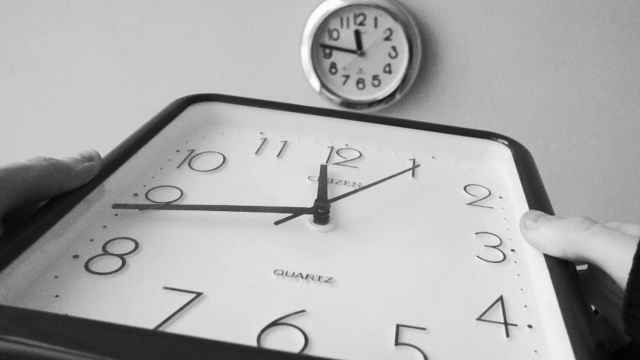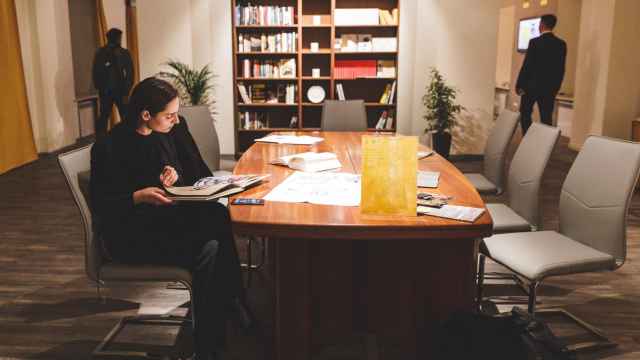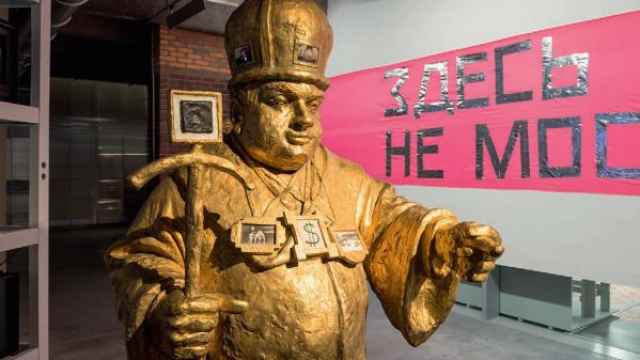Raised in working-class Liverpool in the UK, John Lavell has been on the move for many years. After teaching English in Japan, installing his art in Shanghai, and doing a Ph.D. in Northumbria, UK, he is now putting down roots at Moscow’s British Higher School of Art and Design, where he is a professor in the Fine Art department.
I felt that there might be an opportunity to come here and invigorate a kind of old-school British art school. When I took this job, I figured that this was probably it. I’ve been working here five academic years this September.
I was born in Liverpool. My father was a carpenter by trade, and my mum was a bookbinder. I grew up in a quite a rundown part of Liverpool, but I grew up very happily there. When I was about 20, I decided to follow my inclinations and do a diploma in art and design. I’ve done all kinds of jobs. I planted trees for a while, I was a manual laborer, I’ve packed boxes in warehouses, I’ve worked in kitchens. It hasn’t been a straight shot from art school.
My normal way of working is manipulated paper. I produce large scale pieces of paper which have been stabbed or pierced in some way or hit with a hammer, a semi-violent action. I’ve been very lucky to do some artist-in-residences over the last few years. I was in Iceland, Venice, and two summers ago, I got selected for the Swatch Art Peace Hotel in Shanghai.
I didn’t have a lot of knowledge about Russia, but I did have a father who was old enough to remember the [Second World] War. He had a tremendous respect for our allies. My dad was a unionist and a socialist as well. The idea of the “red team” and the “blue team” never floated it for me.
One of my things is to randomly get off the metro and just walk for a day and see what I can see. One of the things that never ceases to touch me are these tiny little meetings you might have in a queue. Or someone stops you for directions and realizes you’re not Russian, and you have a kind of semi-funny conversation. For a lot of people who have never been here, they probably see Moscow as this grey, crushing metropolis, and that’s not been my experience at all.
One of my all-time favorite spaces in Moscow is the mineral museum at Shabolovskaya. It’s essentially the mineral section of [St. Petersburg’s Kunstkammer]: It’s moved to Moscow and it’s been Sovietized. To me, it’s one of the most beautiful places [in the city]. They’ve got a collection of meteorites.
I find Moscow full of stories. My current project is a series of small watercolors based upon the marbles in the metro. One of my colleagues, Anna Mokhova, exhibited them in the Scandinavian BoConcept design shops. To me, my art is getting out into Moscow via these shops.
Selfishly, I would recommend our degree shows on Friday, June 2. There are drinks and the weather is usually good. All of the B.A. programs will show works, and you will see the range of creative activities from industrial design to fine art, a very eclectic collection from traditional painting to musical furniture. It is the public face of the school. You will see 100-plus perspectives on the world as imagined through a lot of different disciplines.
A Message from The Moscow Times:
Dear readers,
We are facing unprecedented challenges. Russia's Prosecutor General's Office has designated The Moscow Times as an "undesirable" organization, criminalizing our work and putting our staff at risk of prosecution. This follows our earlier unjust labeling as a "foreign agent."
These actions are direct attempts to silence independent journalism in Russia. The authorities claim our work "discredits the decisions of the Russian leadership." We see things differently: we strive to provide accurate, unbiased reporting on Russia.
We, the journalists of The Moscow Times, refuse to be silenced. But to continue our work, we need your help.
Your support, no matter how small, makes a world of difference. If you can, please support us monthly starting from just $2. It's quick to set up, and every contribution makes a significant impact.
By supporting The Moscow Times, you're defending open, independent journalism in the face of repression. Thank you for standing with us.
Remind me later.


